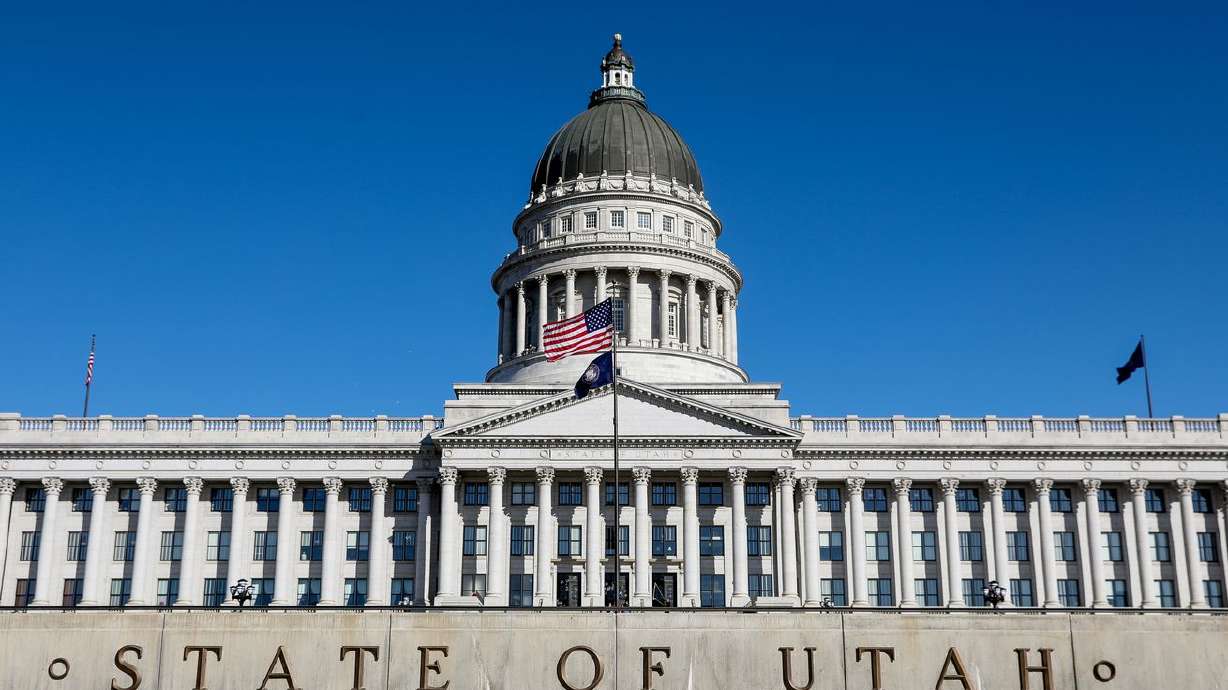Estimated read time: 3-4 minutes
This archived news story is available only for your personal, non-commercial use. Information in the story may be outdated or superseded by additional information. Reading or replaying the story in its archived form does not constitute a republication of the story.
SALT LAKE CITY — A southern Utah lawmaker wants to prohibit doctors from offering any gender reassignment treatment to minors.
"These are young kids ... these are minors that — and I do have a lot of empathy for maybe kids feeling like they're a male in a female body or vice versa — but these puberty blockers that they take can have permanent effect on their bodies," said bill sponsor Rep. Rex Shipp, R-Cedar City.
Under HB92, physicians and surgeons would be restricted from performing gender reassignment treatment on those under 18, including internal surgeries and facial feminization or masculinization surgeries. The bill would also prevent doctors from prescribing hormone therapy for minors who are considering transitioning.
Similar bills have been proposed this year in Alabama, Montana and Indiana.
Most states don't have specific laws guiding transgender care for minors, according to the American College of Obstetricians and Gynecologists.
In Utah, current law prohibits genital mutilation of children but does not address gender reassignment for minors, Shipp noted. His bill would make it unprofessional conduct for physicians or surgeons to offer gender reassignment treatment to minors, at the penalty of potentially losing their medical license.
The bill drew early criticism from LGBTQ advocates who called it a "government intrusion."
"Parents should make decisions about the health care for transgender youth in accordance with evidence-based, medical best practices, which are well-established," Troy Williams, executive director of Equality Utah, an LGBTQ advocacy group, said in a statement to the Deseret News.
"Guidelines for transgender health have been clearly affirmed by the American Academy of Pediatrics, the American Psychological Association, the American Medical Association and many more. Our state leaders should be finding ways to manage the pandemic and pull us together, rather than entertain legislation designed to harm transgender youth," Williams added.
In a separate news release, Williams said the bill "represents a fundamental misunderstanding of transgender youth health care."
Parents should make decisions about the health care for transgender youth in accordance with evidence-based, medical best practices, which are well-established.
–Troy Williams, executive director of Equality Utah
Shipp said he hopes to help protect kids from making decisions at a young age that could cause permanent damage. A person's brain also isn't fully developed until they reach their early 20s, Shipp noted, explaining that those who want to transition should wait until they're at least 18 to make the decision. In the meantime, children can socially transition, he said.
Shipp said he's read material that emphasizes the success rate of counseling and therapy to help children with gender dysphoria.
"But the fact of the matter is these drugs like lupron for the puberty blocking, once they start on that for that purpose and they go to the cross-sex hormone, it's damaging their bodies, you can't go back and go through puberty once you've blocked it," Shipp said.
Prohibiting treatment of minors with hormone therapy could prove the more controversial part of the bill, as that treatment is accepted by the medical field and recommended for some children as a safe way to begin their transition.
Michelle McOmber, executive director of the Utah Medical Association, declined to comment on the bill, stating she needed to speak to the sponsor first.
The American Academy of Pediatrics says that pubertal suppression can reduce distress and "allow for gender-affirming care."
"It reduces the need for later surgery because physical changes that are otherwise irreversible (protrusion of the Adam's apple, male pattern baldness, voice change, breast growth, etc.) are prevented," according to the academy.
Gonadotrophin-releasing hormones — which the bill would prohibit in minors — can be used in adolescents who experience gender dysphoria to prevent them from developing secondary sex characteristics up to age 16. If the treatment stops, regular puberty will resume, the academy says.
Exemptions in the bill would include those who are born with external biological sex characteristics that are "irresolvably ambiguous," those who are intersex; those with both ovarian and testicular tissue; and with other related conditions.










